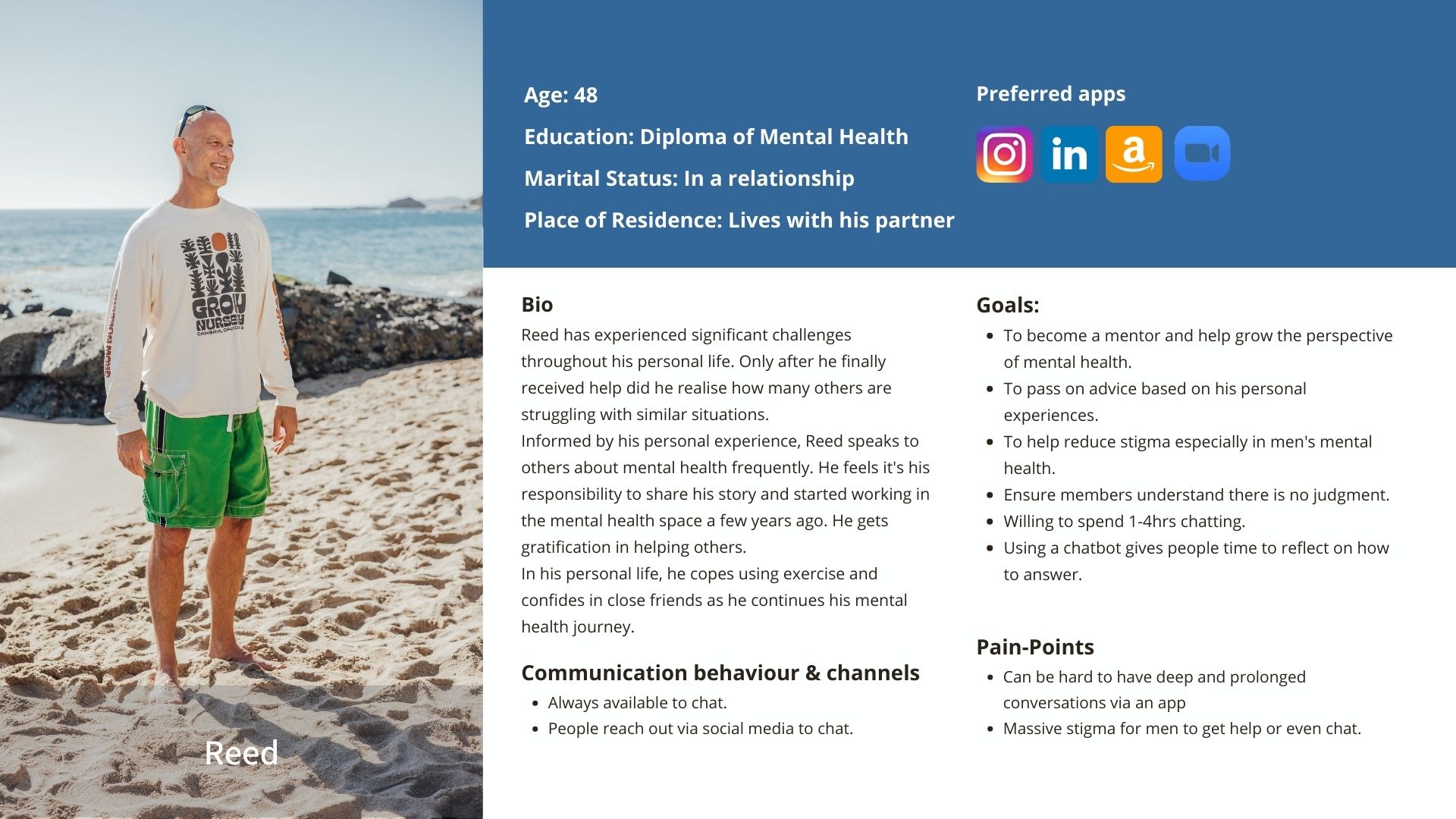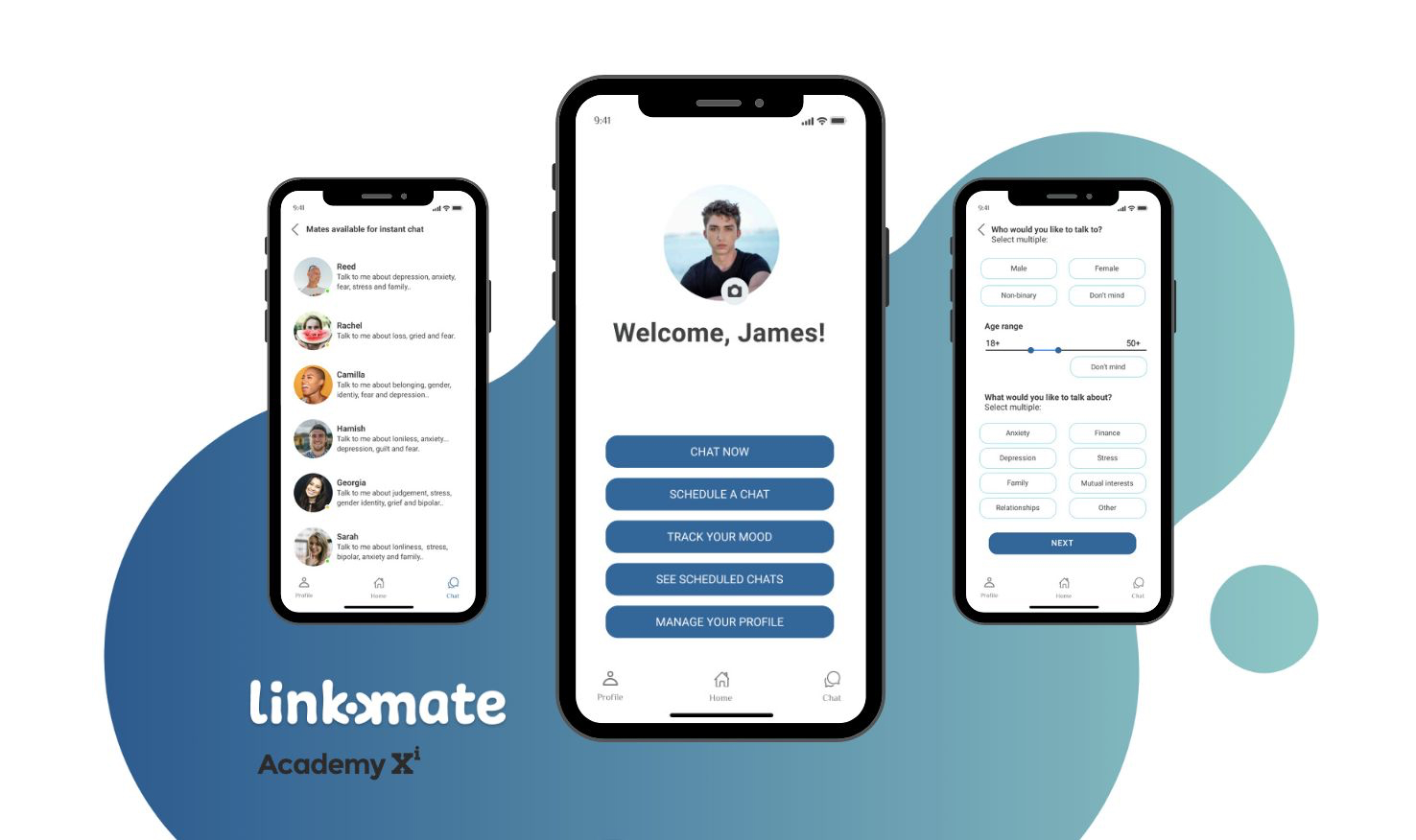Project Summary
- Client: Linkmate (Health Tech / Social Impact)
- Role: UX Researcher & Design Lead (Team Project)
- Duration: Short-term sprint (bootcamp project)
- Focus: Peer support experience, member engagement, empathy-centered UX
Linkmate is a digital mental health platform that connects members (people seeking help) with mates (trained peers) for emotional support. The platform focuses on early intervention through active-empathetic listening, peer-based care, and social prescribing.
I led the design efforts for the mate user experience, including research, ideation, facilitation, and testing. I also contributed to the member experience, participating in research, competitor analysis, and client presentation delivery.
Team & Collaboration
- Facilitated design workshops with a cross-functional team
- Co-led team decision-making during design MVP definition
- Supported multiple roles across mate and member user journeys
Design Challenge
Young Australians often need someone to talk to, especially someone with similar lived experience. Linkmate’s goal was to design a platform where this need could be met in a trusted, meaningful, and structured way.
Business Needs
- Improve engagement, traction, and retention
- Create a streamlined, empathetic UX for both user types
- Build a system that encourages ongoing use without emotional fatigue
UX Research & Insights
User Interviews
- Explored what motivates mates to volunteer and where they struggle
- Asked carefully framed, non-leading questions about mental health to protect user comfort
- Interviewed members to understand their emotional states, expectations, and pain points
Key Insights
- Mates are motivated by a desire to grow their mental health literacy and give back, and they value meaningful connection over gamification.
- Members want lightweight, stigma-free access to emotional support, ideally through someone who has been through something similar.
- Both sides benefit from transparency about how the system works and why they’ve been matched.
Solution Highlights
🔹 For Mates
- Clear onboarding with emphasis on purpose and outcomes
- Career-building and cultural learning as motivators
- Interface designed around emotional availability and confidence building 🔹 For Members
- Mood tracking
- Messaging a mate
- Voice messaging to reduce typing effort
- Clarity about the role of mates and what to expect from conversations

My Role & Leadership
- Facilitated the mate-focused workshop
- Led interview planning and design prioritization
- Collaborated cross-functionally to define the MVP
- Took initiative to resolve team stagnation by identifying core ideas and aligning consensus around them
- Supported final client presentation and delivery “It helped to talk to someone who gets it. I didn’t feel like I was being diagnosed, just heard.” – Member Interviewee
Learnings
- Learned how to ask emotionally sensitive questions without leading or making users uncomfortable
- Recognized the need for structure and ownership in large teams, especially under pressure
- Practiced facilitative leadership, guiding decision-making and maintaining momentum
- Gained confidence designing for emotionally complex user flows
Next Steps
This case has the potential to evolve into a scalable model for mental health support that integrates structured peer training, automated onboarding, and a feedback loop between members and mates. Additional opportunities include deeper integration of mood tracking analytics and match-making logic based on shared experiences.
